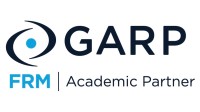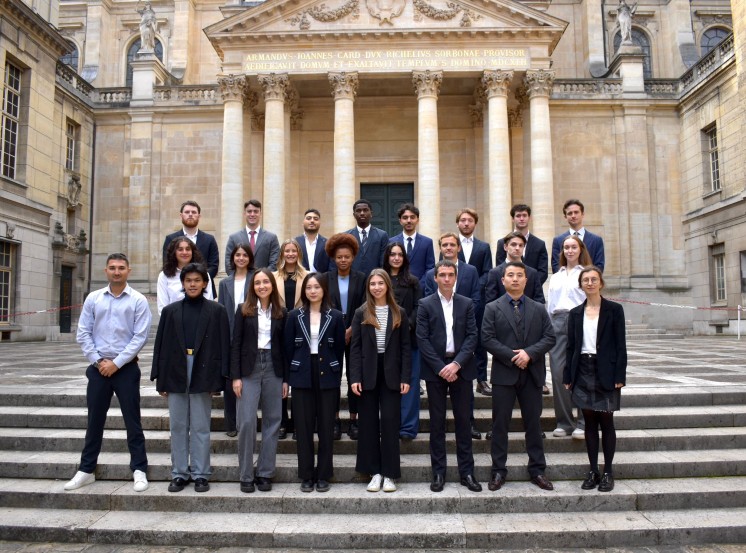ECTS
120 crédits
Durée
2 ans
Composante
École d'économie de la Sorbonne (EES)
Langue(s) d'enseignement
Anglais, Français
Présentation
Master 2 "Finance Technology Data" (FTD) is designed at the interface between finance and data science. It aims to equip professionals with a deep understanding of the capabilities and limitations of the technologies driving the current wave of financial innovation. The FTD program addresses key questions such as:
- Will future financial systems be decentralized or controlled by Big Tech?
- Will Big Data and machine learning improve risk management or reinforce financial discrimination?
- Will Fintech players disrupt traditional banking or face significant barriers to entry?
Addressing these questions requires technical and research skills that are placed at the heart of this program. Students will develop and apply these skills through practical projects and the completion of a Master’s Thesis.
The teaching staff includes a diverse group of academic researchers and industry experts. This includes data scientists, quantitative analysts, blockchain professionals, financial economists, regulators and Fintech experts. Students benefit from interactions with founders and CEOs, insights into Fintech start-ups, and participation in professional competitions through the FTD program’s extensive network of partners.
The FTD program is delivered in English and follows a work-study format, enabling students to acquire professional experience through apprenticeships. Opportunities include roles in in banks, insurance firms, stock exchanges, consulting companies, Fintech start-ups, and central banks.
Objectifs
The FTD program aims to prepare financial economists with strong data skills and the capability to design effective research strategies, in order to understand the economics and technology driving financial innovation.
Savoir-faire et compétences
The program is designed to equip students with the following skills:
- Solid Foundations in Financial and Economic Theory: A comprehensive understanding of key topics including asset pricing, risk management, quantitative finance, and econometrics, with a focus on evaluating the impact of technology on financial innovation.
- Programming Skills in Python: Practical application of data science and Big Data analytics techniques through various projects. For example, the pricing of financial assets (e.g. bonds and options), developing machine learning scoring models, applying natural language processing to transform textual data into quantitative indicators, analyzing user interactions on platforms such as Twitter or Bitcoin network, and coding sections of a blockchain, using LLM models.
- Understanding the Global Fintech Landscape: In-depth examination of Fintech through case studies and insights from guest lecturers representing leading European start-ups, financial companies and academic institutions.
- Designing a Research Strategy: Structured guidance in developing a research strategy for the Master’s Thesis under the supervision of a university professor and a corporate mentor. Students interested in pursuing a PhD will have an opportunity to work on their PhD Research Proposal.
Les + de la formation
1) International Student Body: Around 60% of students come from international backgrounds, fostering a diverse and global learning environment.
2) Expert Faculty: The teaching staff comprises high-level professionals, entrepreneurs and CEOs. This provides students with both theoretical knowledge and practical experience in modern financial practices and industry trends.
3) Strategic Partnerships: The FTD program has established strategic partnerships with leading organizations:
- GARP: The Global Association of Risk Professionals.
- DataCamp: An online platform offering courses in data science, analytics, and machine learning.
- Le Swave: A French Fintech accelerator supporting Fintech start-ups.
- France Fintech : A French Fintech association.
- Finance-Innovation: An initiative promoting innovation in the French financial sector.
- La Place Fintech: A hub for Fintech networking and collaboration.
Accepted students will benefit from these partnerships through CV and cover letter forwarding to potential employers. In addition, the FTD program’s partners provide specialised courses, conduct Fintech case study seminars, and organize guided company visits.
4) DataCamp Access: Students receive full access to DataCamp's online courses, enhancing their data science skills such as data analysis, data engineering, and machine learning.

5) FRM Certification Preparation: The program prepares students for the Financial Risk Manager (FRM) Level 1 certificate in partnership with GARP, offering valuable certification opportunities.

6) Active Alumni Network: The FTD Alumni Association which organizes events, supports current students, and assists with job opportunities.
7) High-End Technology and Goodies: Students have access to high-quality computers, including HP and Macbook models, throughout their studies. Students are also provided with sweatshirts, t-shirts, bags and mugs branded with the FTD program’s logo.
8) Work-Study Trips: The program organizes and funds a work-study trip, allowing students to explore financial landscapes and cultural activities. Recent destinations include:
- Stockholm, Sweden in April 2023 (Sweden Central Bank, SEB commercial bank, Swedish Fintech Association and Zimpler start-up)
- Frankfort, Germany in April 2024 (European Central Bank, BlackRock, Deutsche Bank).
- Zurich, Switzerland in April 2025 (UBS, Swiss National Bank, University of Zurich).
9) Competitions and Challenges: Through the FTD program’s ongoing partnerships with companies, students have the opportunity to participate in various competitions, including:
- Best Master Thesis: Organized by VO2 Group, this competition awards a trip to the student with the top Master Thesis. Recent destinations have included Montreal (2024), Shanghai (2023) and New York (2022).
- DRiM Game: An intra-university challenge organized by Deloitte and SAS, focusing on credit risk estimation using financial and machine learning algorithms. The students of the FTD program secured 1st place won in 2023, 2nd place won in 2024.
- FinTech Generations: A FinTech entrepreneurial challenge organized by France FinTech, Le Swave, Société Générale and Treezor. The students of the FTD program earned 2nd place won in 2023.
- Sorbonne Data Challenge: A data science competition organized by University Paris 1 Pantheon. The students of the FTD program achieved 1st place won in 2024, finals in 2025.
Organisation
Ouvert en alternance
The Master in Finance Technology and Data (FTD) is a work-study program. Courses commence on 1 September. During the first three weeks of September, students will attend classes every day. From the fourth week onwards, classes will take place on Mondays and Tuesdays at the University. The remainder of the week will be dedicated to gaining professional experience through apprenticeships at banks, insurance companies, consulting companies, Fintech start-ups, regulatory bodies, and more.
For detailed information about apprenticeship contracts, please click here.
Membres de l’équipe pédagogique
 Olena Havrylchyk is the Founding Director of the Master 2 Finance Technology Data. She is a Professor of Economics at the University Paris 1 Panthéon-Sorbonne and a researcher at the Centre d’Économie de la Sorbonne, where she leads the research program on financial globalization. She also serves as consultant at the OECD on financial regulation and Fintech and is a member of the pilot committee of Le Swave, Fintech incubator. Olena has been a visiting scholar at the Bank of England, South African Reserve Bank, National Bank of Hungary, National Bank of Poland and other central banks, foreign universities and research centers. He research has been published in prestigious journals, including the Review of Finance and the Journal of Banking and Finance. Her paper on P2P lending won the Best Paper Award at the First Toronto FinTech Conference. She is also the winner of the Trophée SAB 2013 for sustainable finance and Olga Radzyner Award 2011 for scientific work on the European economic integration, bestowed by the Central Bank of Austria. Originally from Ukraine, Olena holds PhD in Economics from the European University Viadrina (Germany). Olena is currently coordinating an ANR research project "Technology and financial (dis)intermediation" and participates in the "A FINancial supervision and TECHnology compliance training programme" that unites 25 university and fintech partners within the framework of the EC Horizon 2020. Olena co-organizes Paris FinTech and Crypto Webinar.
Olena Havrylchyk is the Founding Director of the Master 2 Finance Technology Data. She is a Professor of Economics at the University Paris 1 Panthéon-Sorbonne and a researcher at the Centre d’Économie de la Sorbonne, where she leads the research program on financial globalization. She also serves as consultant at the OECD on financial regulation and Fintech and is a member of the pilot committee of Le Swave, Fintech incubator. Olena has been a visiting scholar at the Bank of England, South African Reserve Bank, National Bank of Hungary, National Bank of Poland and other central banks, foreign universities and research centers. He research has been published in prestigious journals, including the Review of Finance and the Journal of Banking and Finance. Her paper on P2P lending won the Best Paper Award at the First Toronto FinTech Conference. She is also the winner of the Trophée SAB 2013 for sustainable finance and Olga Radzyner Award 2011 for scientific work on the European economic integration, bestowed by the Central Bank of Austria. Originally from Ukraine, Olena holds PhD in Economics from the European University Viadrina (Germany). Olena is currently coordinating an ANR research project "Technology and financial (dis)intermediation" and participates in the "A FINancial supervision and TECHnology compliance training programme" that unites 25 university and fintech partners within the framework of the EC Horizon 2020. Olena co-organizes Paris FinTech and Crypto Webinar.
Daniel Petrov is the Executive Director of the Master 2 Finance Technology Data. He is also a Senior Quantitative Analyst at BNP Paribas, where he focuses on the review and validation of complex financial models and methodologies - particularly for exotic derivatives - within the frameworks of counterparty credit risk and market risk. Before joining the banking sector, Daniel built his expertise in financial markets, risk management, mathematics, and data science while working at leading consulting firms such as EY and Capgemini, delivering high-impact solutions to clients in the financial industry. A former student of the Master 2 Finance Technology Data program himself, Daniel now contributes to its continued excellence and growth.

Caroline Bozou is an Assistant Professor of Economics at the University Paris 1 Panthéon-Sorbonne. She holds a PhD in Economics from University Paris 2 Panthéon- Assas. Following her PhD, she worked as a researcher at Sciences Po within Observatoire Français des Conjonctures Économiques (OFCE). Her research interests include monetary and banking economics, central bank communication and macroeconomics. Her research has been published in international peer-reviewed journals, including the Journal of Financial Services Research.

Catherine Bruneau is a Professor of Economics at the University of Paris 1 Panthéon-Sorbonne, a researcher at the Council for European Studies (CES), and an associate researcher at the Labex ReFi. She has served as a consultant for the Bank of France and is currently a consultant at the France Stratégie. Catherine is an expert in theoretical econometrics, macro-econometrics, financial econometrics, and risk analysis and management, with a specific focus on extreme risk in finance and insurance. Her research has been published in leading academic journals, the Journal of Econometrics, Oxford Bulletin of Economics and Statistics, Journal of Forecasting, Journal of Risk and Insurance, Journal of Macroeconomics, Journal of Banking and Finance, and the Journal of Property Research. She has supervised around 20 PhD students, both French and international, who have developed an academic or professional career in banks, insurance companies and consulting firms.
 Sylvain Carré is a Professor of Economics at the University of Paris 1 Panthéon-Sorbonne. He holds a PhD in Economics from École Polytechnique Fédérale de Lausanne. Sylvain’s research primarily focuses on traditional banking economics, blockchain and decentralized finance, and information economics. His work has been published in the Review of Financial Studies, Journal of Economic Theory, Journal of International Economics, and Journal of Banking and Finance. In 2023, he was awarded the "Young Researcher in Economics" prize by the Autorité des Marchés Financiers.
Sylvain Carré is a Professor of Economics at the University of Paris 1 Panthéon-Sorbonne. He holds a PhD in Economics from École Polytechnique Fédérale de Lausanne. Sylvain’s research primarily focuses on traditional banking economics, blockchain and decentralized finance, and information economics. His work has been published in the Review of Financial Studies, Journal of Economic Theory, Journal of International Economics, and Journal of Banking and Finance. In 2023, he was awarded the "Young Researcher in Economics" prize by the Autorité des Marchés Financiers.
 Clément Gorin is a Junior Professor of Economics at the University Paris 1 Panthéon-Sorbonne. He holds a PhD in Economics from the University of Lyon and completed a post-doctoral fellowship at the University of Toronto. Clément's research is positioned at the intersection of spatial economics and machine learning, exploring how the movement of people and ideas shape the distribution of economic activity and the development of urban areas. From a methodological perspective, Clément’s research makes extensive use deep learning models to exploit original sources of data, with a focus on image and language modelling. He has taught machine learning courses at both MSc and PhD levels in Ecole Normale Supérieure de Lyon, Aix-Marseille School of Economics, and the University of Toronto, among others.
Clément Gorin is a Junior Professor of Economics at the University Paris 1 Panthéon-Sorbonne. He holds a PhD in Economics from the University of Lyon and completed a post-doctoral fellowship at the University of Toronto. Clément's research is positioned at the intersection of spatial economics and machine learning, exploring how the movement of people and ideas shape the distribution of economic activity and the development of urban areas. From a methodological perspective, Clément’s research makes extensive use deep learning models to exploit original sources of data, with a focus on image and language modelling. He has taught machine learning courses at both MSc and PhD levels in Ecole Normale Supérieure de Lyon, Aix-Marseille School of Economics, and the University of Toronto, among others.
 Bertrand Hassani is the CEO and Managing Partner at QUANT AI Lab. Previously, he was a Partner at Deloitte, where he worked on the development of the AI and Analytics practice. Before joining Deloitte, Bertrand served as Chief Solution Officer and General Manager of the Paris Office at InstaDeep, where he was involved in the application of advanced AI for risk management across sectors such as banking, insurance, and utilities. His work also focused on model interpretability, and advanced visualisation technologies, including AR, VR, and 3D. Earlier in his career, Bertrand was Vice President and Chief Data Scientist for Capgemini Consulting, where he developed innovative methods for reducing financial institutions' exposures using data science methodologies, including data mining, machine learning, frequentist statistics, and Artificial Intelligence (AI). He also held the position of Global Head of Research and Innovations position for Santander Bank. Bertrand Hassani holds a PhD in Applied Mathematics from University Paris 1 Panthéon-Sorbonne. He is an active associate researcher at Paris 1 Pantheon-Sorbonne University and holds an honorary reader position at University College London. Additionally, he co-directs the Data Science and Regulation research axis within the Labex Refi, a combination of ENA, ESCP and Paris 1 laboratories. Bertrand is a recipient of multiple awards for his contributions to operational risk modelling, climate risk modelling, and credit risk modelling.
Bertrand Hassani is the CEO and Managing Partner at QUANT AI Lab. Previously, he was a Partner at Deloitte, where he worked on the development of the AI and Analytics practice. Before joining Deloitte, Bertrand served as Chief Solution Officer and General Manager of the Paris Office at InstaDeep, where he was involved in the application of advanced AI for risk management across sectors such as banking, insurance, and utilities. His work also focused on model interpretability, and advanced visualisation technologies, including AR, VR, and 3D. Earlier in his career, Bertrand was Vice President and Chief Data Scientist for Capgemini Consulting, where he developed innovative methods for reducing financial institutions' exposures using data science methodologies, including data mining, machine learning, frequentist statistics, and Artificial Intelligence (AI). He also held the position of Global Head of Research and Innovations position for Santander Bank. Bertrand Hassani holds a PhD in Applied Mathematics from University Paris 1 Panthéon-Sorbonne. He is an active associate researcher at Paris 1 Pantheon-Sorbonne University and holds an honorary reader position at University College London. Additionally, he co-directs the Data Science and Regulation research axis within the Labex Refi, a combination of ENA, ESCP and Paris 1 laboratories. Bertrand is a recipient of multiple awards for his contributions to operational risk modelling, climate risk modelling, and credit risk modelling.
 Hoang Viet Le is the Lead Quantitative Researcher and Data Scientist at Keynum Investments, where he designs and deploys machine learning systems for financial decision‑making across trading, risk, and ESG. His research spans deep learning for market prediction, news sentiment for portfolio construction, and energy forecasting, with publications in Energy Economics and Finance Research Letters. An alumnus of the Master 2 Finance Technology Data, he currently teaches Machine Learning Foundations for Risk and Finance and is pursuing a PhD at Université Paris‑Saclay on deep learning and financial text analytics.
Hoang Viet Le is the Lead Quantitative Researcher and Data Scientist at Keynum Investments, where he designs and deploys machine learning systems for financial decision‑making across trading, risk, and ESG. His research spans deep learning for market prediction, news sentiment for portfolio construction, and energy forecasting, with publications in Energy Economics and Finance Research Letters. An alumnus of the Master 2 Finance Technology Data, he currently teaches Machine Learning Foundations for Risk and Finance and is pursuing a PhD at Université Paris‑Saclay on deep learning and financial text analytics.
 Xavier Lavayssière is an Entrepreneur and Consultant in Digital Finance. With a background in public law of the economy, mathematics and computer science, Xavier assists the public sector in navigating the technological, policy, and regulatory challenges related to crypto-assets, Central Bank Digital Currencies (CBDCs), and financial asset tokenization. Xavier has published recognized works on these topics and has collaborated with leading organizations such as the Polytechnique, the International Monetary Fund (IMF), the Institute of Law and Blockchain (ILB), the BpiFrance and the UCL Centre for Blockchain Technologies (CBT). He is also an educator, having taught at prestigious institutions including Sciences Po, École des Ponts, and the Paris Bar School. In addition, Xavier has co-founded several initiatives such as the Smart Contract Academy, Les Bricodeurs, XVLV, and The Block Café.
Xavier Lavayssière is an Entrepreneur and Consultant in Digital Finance. With a background in public law of the economy, mathematics and computer science, Xavier assists the public sector in navigating the technological, policy, and regulatory challenges related to crypto-assets, Central Bank Digital Currencies (CBDCs), and financial asset tokenization. Xavier has published recognized works on these topics and has collaborated with leading organizations such as the Polytechnique, the International Monetary Fund (IMF), the Institute of Law and Blockchain (ILB), the BpiFrance and the UCL Centre for Blockchain Technologies (CBT). He is also an educator, having taught at prestigious institutions including Sciences Po, École des Ponts, and the Paris Bar School. In addition, Xavier has co-founded several initiatives such as the Smart Contract Academy, Les Bricodeurs, XVLV, and The Block Café.
 Hugo Michel is a Quant/Data Scientist at Crédit Agricole CIB, where he develops advanced AI models for the trading desk, combining methods from artificial intelligence, quantitative finance, and econometrics. He is an alumnus of the Master 2 Finance Technology Data and holds a post-master’s degree in Big Data from Télécom Paris. His latest research focused on Physics-Informed Neural Networks (PINNs) for vanilla option pricing, demonstrating how deep learning models can embed financial physics to solve stochastic differential equations and efficiently compute sensitivities through Automatic Differentiation. His academic foundation and professional expertise enable him to approach financial challenges through both rigorous quantitative modelling and state-of-the-art AI techniques, with a focus on model implementation, deployment, and real-world impact assessment.
Hugo Michel is a Quant/Data Scientist at Crédit Agricole CIB, where he develops advanced AI models for the trading desk, combining methods from artificial intelligence, quantitative finance, and econometrics. He is an alumnus of the Master 2 Finance Technology Data and holds a post-master’s degree in Big Data from Télécom Paris. His latest research focused on Physics-Informed Neural Networks (PINNs) for vanilla option pricing, demonstrating how deep learning models can embed financial physics to solve stochastic differential equations and efficiently compute sensitivities through Automatic Differentiation. His academic foundation and professional expertise enable him to approach financial challenges through both rigorous quantitative modelling and state-of-the-art AI techniques, with a focus on model implementation, deployment, and real-world impact assessment.

Rami El Mnebhi is the AI Lead at VO2 Group, heading the AI Lab to provide cutting-edge AI solutions for financial institutions tackling their ESG roadmaps and regulations. He holds an engineering degree in Computer Science from INSA Lyon and has extensive experience in data science, ESG, and cloud computing. Previously at Société Générale, Rami led key projects on ESG data integration, big data, and AI solutions, optimizing cost and carbon impact. He was pivotal in developing tools for ESG compliance and machine learning models for fund performance simulation. At VO2 Group, Rami oversees advanced AI initiatives, including autonomous systems, reinforcement learning, and data segmentation. He is also focused on exploring how AI can be integrated into all company processes where it is beneficial, positioning the company at the forefront of AI innovation.

Thomas Renault is a Professor of Economics at the University Paris-Saclay. Thomas holds a PhD in Finance from University Paris 1 Panthéon-Sorbonne. His research explores the role of the internet and social media on the price discovery in financial markets. He focuses on leveraging online data to measure aggregate investor sentiment, gauge investor attention to news, improve real-time event detection, and identify fraud. His work has been published in the Journal of Banking and the Finance, Journal of International Money and Finance.
 Thomas Rigou is a PhD Candidate in Finance at the University Paris 1 Panthéon-Sorbonne and an alumnus of the Master 2 Finance Technology Data. His research lies at the intersection of finance, artificial intelligence, and natural language processing, with a particular focus on leveraging Large Language Models (LLMs) to detect and quantify firms’ risk exposures from textual data, including annual reports, earnings conference calls, and financial news. By combining state-of-the-art NLP techniques with financial econometrics, his work aims to develop innovative measures of risk that improve forecasting, portfolio construction, and asset pricing models.
Thomas Rigou is a PhD Candidate in Finance at the University Paris 1 Panthéon-Sorbonne and an alumnus of the Master 2 Finance Technology Data. His research lies at the intersection of finance, artificial intelligence, and natural language processing, with a particular focus on leveraging Large Language Models (LLMs) to detect and quantify firms’ risk exposures from textual data, including annual reports, earnings conference calls, and financial news. By combining state-of-the-art NLP techniques with financial econometrics, his work aims to develop innovative measures of risk that improve forecasting, portfolio construction, and asset pricing models.
 Pierre Sanitas is a Senior Quantitative Analyst in Sustainable Investing at AXA Group. He graduated from the first promotion of the Master 2 Finance Technology Data. He has a strong knowledge of data-oriented projects thanks to his various experiences in the fields of investment banking and asset management. Focusing on data science throughout his career, he now specializes in the research and analysis of climate and ESG (Environmental, Social, Governance) indicators, and their integration in the investment processes of multinational corporations.
Pierre Sanitas is a Senior Quantitative Analyst in Sustainable Investing at AXA Group. He graduated from the first promotion of the Master 2 Finance Technology Data. He has a strong knowledge of data-oriented projects thanks to his various experiences in the fields of investment banking and asset management. Focusing on data science throughout his career, he now specializes in the research and analysis of climate and ESG (Environmental, Social, Governance) indicators, and their integration in the investment processes of multinational corporations.

Eric Vansteenberghe is a Senior Economist and Researcher at the Banque de France – ACPR. He joined the research unit following several projects in bank stress testing, particularly his work on the 2016 exercise at the European Central Bank (ECB). Eric holds a PhD in Economics from Paris School of Economics. His research interests focus on modelling banking, insurance, and investment, using prudential data from these financial institutions provided by regulators. He has developed stress tests, extreme events models, agent-based models, proposed networks and contagion measures, and explored machine learning techniques to enrich prediction of default, risk and profitability. Trained as a space engineer in Supaero (France) and Cranfield University (UK), Eric holds a master degree from Paris School of Economics. Before transitioning to the finance industry, he worked for several years in the communication satellite industry in Great Britain, Germany at Airbus and OHB.
Charaf Zguiouar is a Data Scientist at BNP Paribas. An FTD alumnus, his work spans model risk, machine learning, and credit-portfolio analytics. He builds production data pipelines, supports local teams on model development, and monitors model risk at scale. His research interests include market microstructure, agent-based models, and option pricing under rough volatility. He works in Python and Rust to improve performance and reliability, and the integration/maintenance of internal software.
Programme
Teaching is organized around four blocks: Finance, Data, Fintech, and Active Learning.
The teaching language will be English, while most professional training will be in French.
For detailed information on each subject, please select the corresponding subject in the table below:
Sélectionnez un programme
Master 1ère année Monnaie, banque, finance, assurance
Au choix: parmi
UE1 : Economie
14 créditsUE2 : Monnaie-Banque-Finance-Assurance
16 créditsCorporate finance
36hEconomics of Banking
18hEconomie de l'assurance
18hFinancial market
54hAnalyse de données avec Python
2 crédits18hProjet professionnel
1 crédits12h
Au choix: parmi
UE3 : Monnaie Banque
16 créditsUE4 : Finances quantitat
14 créditsAnalyse financière
36hEconométrie financière
54hFinance quantitative sous VBA
21hPython pour la finance
2 crédits18h
Master 2ème année Finance technology data
UE1 Finance
UE2 Data
12 créditsUE3 Fintech
9 créditsChoix 1 option
Au choix: parmi
Data challenge
2 crédits18hMonetary economics and crypto-currencies
2 crédits18h
Economics and technology of Blockchain
18hFinancial Innovation
18hFintech case study
18h
UE4 Master Thesis
5 créditsFintech Research seminar
18hMaster thesis seminar
3 crédits18h
UE7 Fintech (choix cours 6 ECTS)
6 créditsAu choix: parmi
Choix 2 matières : PhD track + 1 cours
Option à choix
Au choix: parmi
Applied Machine Learning
2 crédits18hCrypto Industry and Pub
2 crédits18hESG and data science
2 crédits18h
PhD track : Writing PhD Proposal
4 crédits36h
Choix 3 matières hors phD track
UE8 Master thesis
9 créditsMaster thesis
9 crédits18h
UE5 Finance (choix cours 4 ECTS ou choix 2+2 ECTS)
4 créditsUE6 Data
11 créditsApplied Big Data Analytics in Finance (Python)
18hBitcoin Network and Machine Learning (Python)
18hData privacy
1 crédits6hFinancial econometrics
2 crédits18hQuantitative methods in finance (R)
2 crédits18h
Admission
Conditions d'admission
Entry into the Master 2 FTD program is selective. To succeed in this program, students should have a strong interest in technology and quantitative methods. This year’s cohort includes students from the following schools and universities: University Paris 1 Panthéon-Sorbonne, University Paris-Saclay, University Paris-Pantheon-Assas, University Paris Nanterre, Toulouse School of Economics, University of Glasgow, EMLyon Business School, ESILV Leonardo De Vinci.
Admission requires a Master 1 degree in finance, econometrics, or economics. Students with a Master 1 or a Master 2 degree in other fields such as mathematics, engineering or computer science will be accepted if they have a fundamental understanding of finance, econometrics, and economics.
Applicants should possess basic skills in coding in at least one of the programming languages used by data analysts and data scientists, such as Python, R, SAS, and Stata. For students lacking programming skills, the completion of an online course in programming, preferably with a certificate, is recommended.
Since all courses are taught in English, a working knowledge of English is essential. While fluency in French is not a requirement, it can significantly enhance the chances of securing an apprenticeship contract.
As the FTD program is a work-study format ("alternance" in French), foreign students must have the right to work in France. Students can verify their eligibility to work as apprentices in France by checking the relevant guidelines here.
Modalités d'inscription
The application period for the academic year 2026 - 2027 will be announced in January 2026.
- All students must apply via the eCandidat platform (except students of the M1 MBFA program at University Paris 1 Pantheon-Sorbonne).
- M1 MBFA students from University Paris 1 Pantheon-Sorbonne must apply via the internal platform ENT.
- The application should consist of (i) a CV, (ii) academic records, (iii) a cover letter detailing your interest in the FTD program and (iv) a two-page note that provides evidence-based discussion about the role of technology in finance e.g. Neobanks, Big Data, machine learning, cryptocurrencies, crowdfunding, and Big Tech in finance. Additional documents that may support a student's application, such as course certificates, work or internship certificates, and letters of recommendation will be accepted however, they are not compulsory.
- Details about the two-page note: There is no need to cover all examples of financial innovation. Instead, select a specific topic, such as "The environmental costs of bitcoin" or "The entry of Big Tech in finance". It is important that the note is written based on credible sources of information, including academic papers, publications of central banks and international organisations, and available data. Please cite all sources used. The note should focus on conducting a thorough literature review rather than presenting individual opinions.
2. If selected, candidates will be invited to an interview with the Academic Director and the Executive Director.
3. If accepted after the interview, candidates will have to find an apprenticeship contract in a field related to the master’s program in order to be officially admitted. This process will involve applying for apprenticeship positions and successfully completing job interviews with potential employers.
- The Master encourages candidates to proactively seek apprenticeship positions that align with their interests. Securing an apprenticeship before the admission interview can significantly enhance a candidates chances of being accepted to the FTD program.
For more information, please, contact:
- Olena Havrylchyk, Academic Director - olena.havrylchyk @ univ-paris1.fr. Contact for academic and strategic questions.
- Daniel Petrov, Executive Director - daniel.petrov @ univ-paris1.fr. Contact for questions related to the application process, day-to-day management, partnerships, and general queries.
Tarifs
The tuition for the Master program is fully covered by the companies where students will complete their apprenticeships. Students are not required to pay university fees (however, students are required to pay the CVEC government fee).
Et après
Poursuite d'études
Given the master’s focus on theoretical foundations and quantitative methods (econometrics and data science), graduates will be well-positioned to pursue a PhD. The Master Research Thesis provides an opportunity to begin formulating a potential PhD research topic. As the academic literature on Fintech is still evolving, work experience during the Master’s program will aid in developing relevant research questions.
There are two types of PhD contracts available after completing of the Master’s program:
Insertion professionnelle
This master’s program is designed for analytical careers across various sectors, including traditional financial institutions (banks, asset managers, insurance companies, hedge funds, stock exchanges, corporates), Fintech, Insurtech and Regtech start-ups, as well as regulatory and supervisory bodies.
The FTD program prepares students for a wide range of job opportunities, such as data scientist, quantitative analyst, risk manager, trader, sales professional, financial markets analyst, structurer, portfolio manager, quantitative researcher, machine learning specialist, AI engineer, data inspector, data analyst, blockchain and tokenomics analyst, sustainability analyst, innovation and strategy consultant.
This year, students have signed apprenticeship contracts with leading organisations including Euronext, HSBC, Société Générale, Crédit Agricole CIB, Natixis, Crédit Mutuel, La Banque Postale, Dexia, National Bank of Kuwait, Amundi Asset Management, Ministère de l'Économie et des Finances, AXA, Allianz, Groupama Assurances Mutuelles, Quant AI Lab, Adrian, Orange, WEDR.



